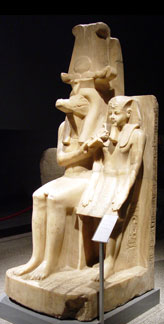... The devastating truth is that a large number of ancient Quranic manuscripts, dating from first century of Hijra were discovered in the Great Mosque of Sana’a (Yemen), which significantly differs from the present standard one. Carbon dating system confirmed that these Qurans are not forged one by religious rivalries. Moreover, these Qurans were discovered by Muslims, not infidels.
This is, probably, the most embarrassing event to Muslims in the 1,400-year history of Islam.
... Until now, only three ancient copies of the Quran are found. The one preserved in the British Library in London, dates from the late seventh century and was thought to be the oldest one. But the Sana’a manuscripts are even older. Moreover, these manuscripts are written in a script that originates from the Hijaz—the region of Arabia where prophet Muhammad lived, which makes them not only the oldest to have survived, but one of the earliest authentic copies of the Quran ever.
... As if it is not enough, many manuscripts showed the sign of palimpsests, i.e., versions very clearly written over even earlier washed off versions. The underwriting of palimpsest is, of course, often difficult to read visually, but modern tools, such as ultraviolet photography, can highlight them. It suggests that the Sana’a manuscripts are not only variants to the present version of the Quran, but the Sana’a manuscripts themselves were variants of earlier version, re-written on the same paper. It means, Allah’s claim that original text is preserved in heaven on golden tablets (Q 56: 77–78; 85:21–22), which none can touch except angels is also a fairy-tale.



 LinkBack URL
LinkBack URL About LinkBacks
About LinkBacks






 Reply With Quote
Reply With Quote


 Moslem propaganda from the Axis of evil ....
Moslem propaganda from the Axis of evil ....  Sgt Cold, say a prayer and run for your life....
Sgt Cold, say a prayer and run for your life....

